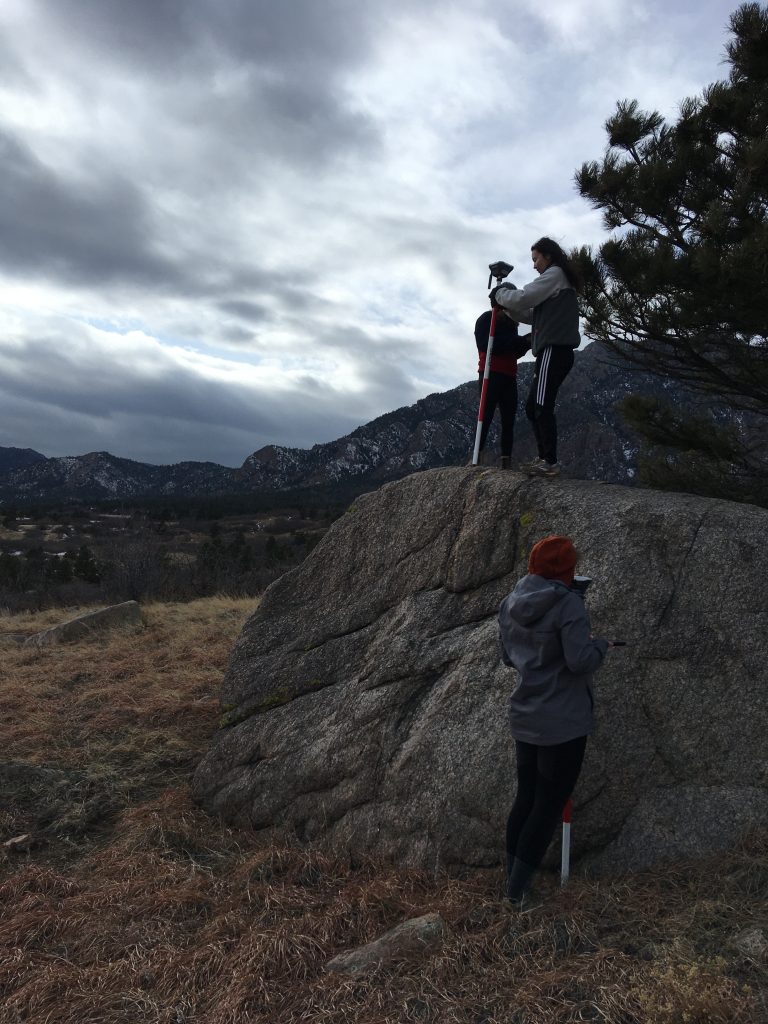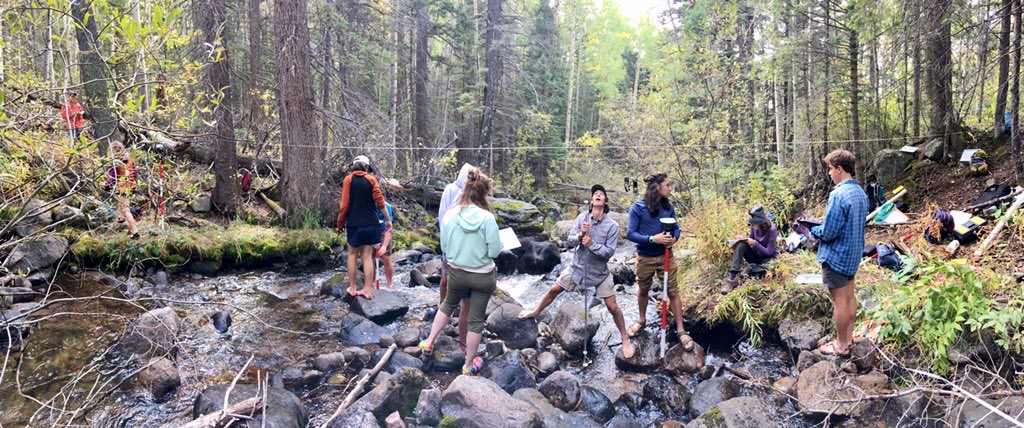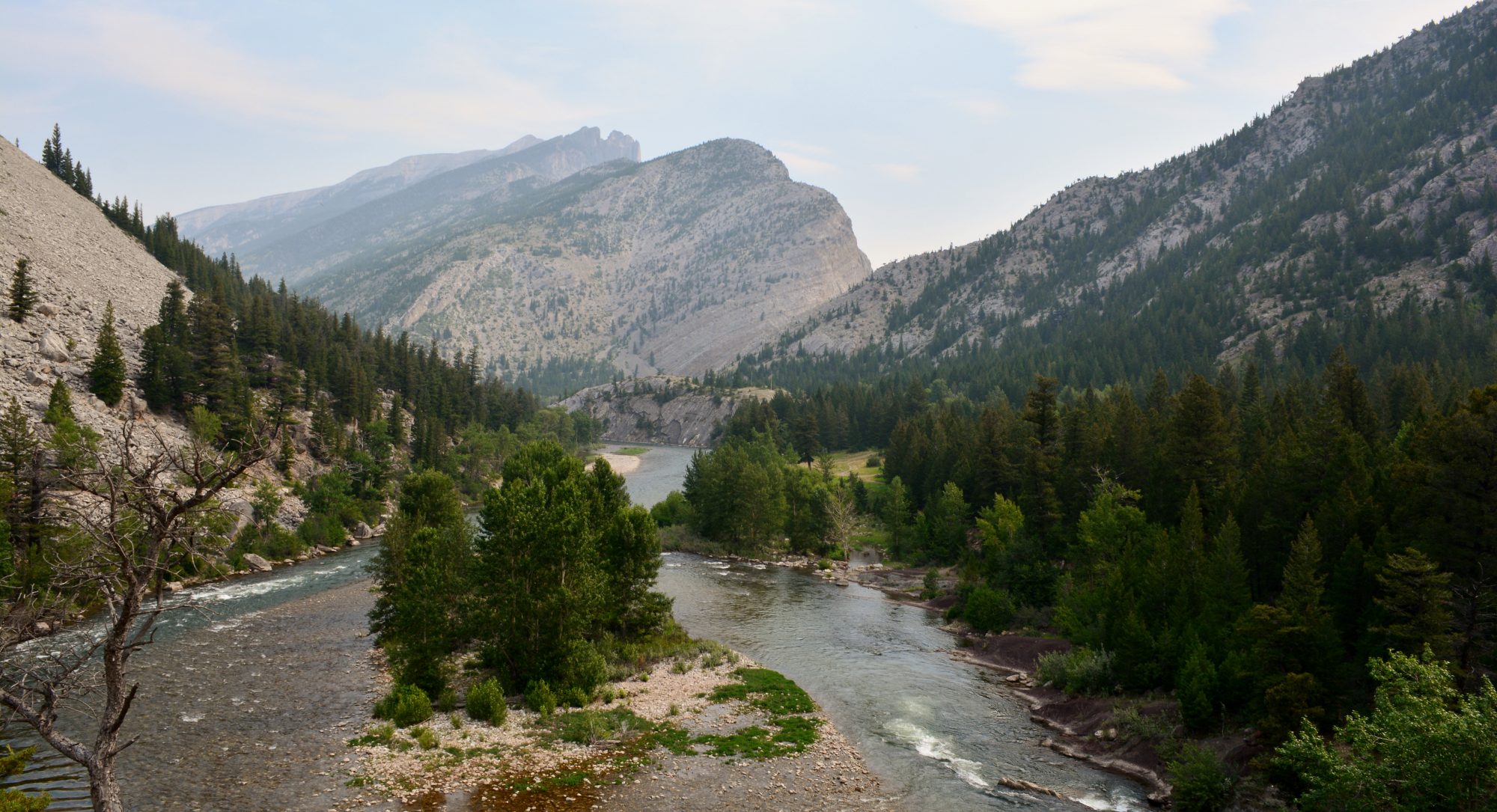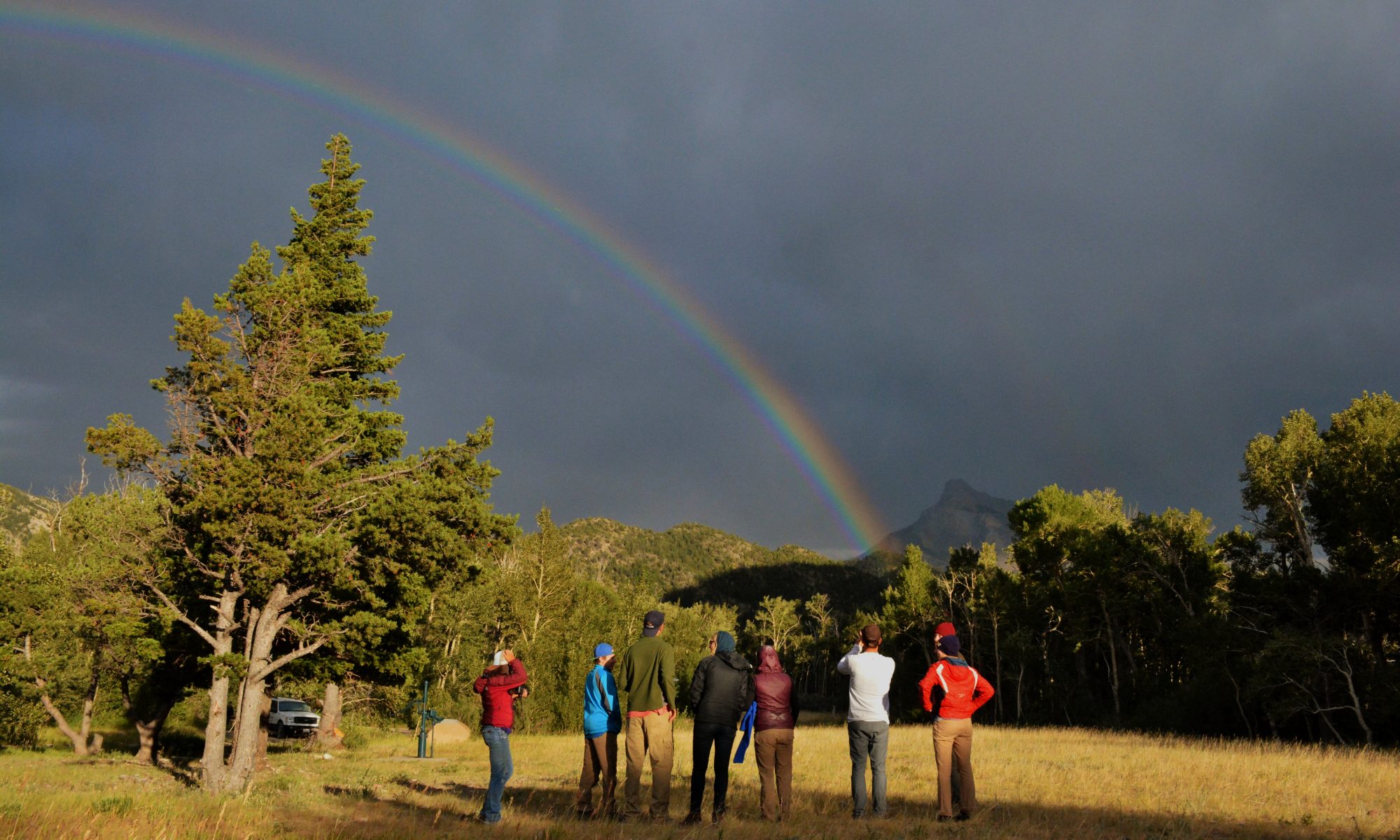At CC, I teach courses in the Geology Department, courses cross-listed in the Environmental Program, as well as some of the First Year Program seminars. My classes tend to relate to surface processes and methods such as numerical modeling and GIS that I use in my research. However, I enjoy the opportunity to teach a little out of my wheelhouse, and brush up on topics that I haven’t had the chance to think about since undergrad.
As of 2025, here is what I teach:
- Intro to Earth Systems (GY140) – Introduction to geologic methods, rock types, and the earth history of Colorado Springs with labs and field trips. I also teach an accessible version of this course that is overnight field-trip free, and have taught a fully online version (COVID-19 response).
- Environmental Geology (GY150) – Similar to it’s GY140 counterpoint, this introductory course covers the interactions between the solid earth system (plate tectonics, rocks, minerals), the climate system, and the hydrologic system with an emphasis on earth resources and environmental justice. Field trips focus on understanding the Colorado Springs region.
- Earth as a Physical System (GY212) – This sophomore-junior level course builds on knowledge in the introductory courses to prepare students for the methods in the physics-based major courses (such as structural geology and geomorphology). We cover geologic field mapping, structural measurements, intro to GIS, and geomorphic surveying. Emphasis is on the Rocky Mountain region and contemporary geologic topics therein.
- Numerical Modeling in Earth Science (GY/EV301) – Representations of earth processes as 1 and 2-D equations of heat and mass flow. We introduce the Python coding language, derive diffusion and advection equations, and write our own numerical models to describe processes such as contaminant transport, crater edge diffusion, and carbon transport. Yes, that’s doable in 3.5 weeks.

- Landscape Processes and Evolution (GY320) – Erosional processes that shape our landscape, including hillslope diffusion, landsliding, sediment transport, and bedrock erosion. Labs and projects introduce and utilize GIS and topographic surveying with autolevels and RTK GPS. How does mass move, and how can we measure it?

- Collaborative Research Seminar: Applied Geology of Colorado Springs (GY400) – this research-based class changes topics every year. In Winter 2022, we investigated the geomorphic setting of Mesa Creek as it runs through Sondermann Park. Colorado Springs Department of Parks, Recreation, and Cultural Services is interested in remediation of the creek, particularly following construction of the Centennial Boulevard extension. We provided a baseline survey using: aerial photo analysis since 1938, modern vs historic grain size analysis, channel complexity metrics, and 2D hydraulic modeling. This research was presented by students at the 2022 GSA Annual Meeting in Denver, CO.
- Beginnings of the Anthropocene: Geologic and Cultural ‘Golden Spikes’ (CC100) – part of the First Year Programs, this class investigates the geologic mode of inquiry, scientific evidence for the Anthropocene, and cultural markers of the epoch. What, and when, is the beginning of the Anthropocene?

